Are drug cartels 'terrorist organizations'? US, Mexican leaders have some strong opinions
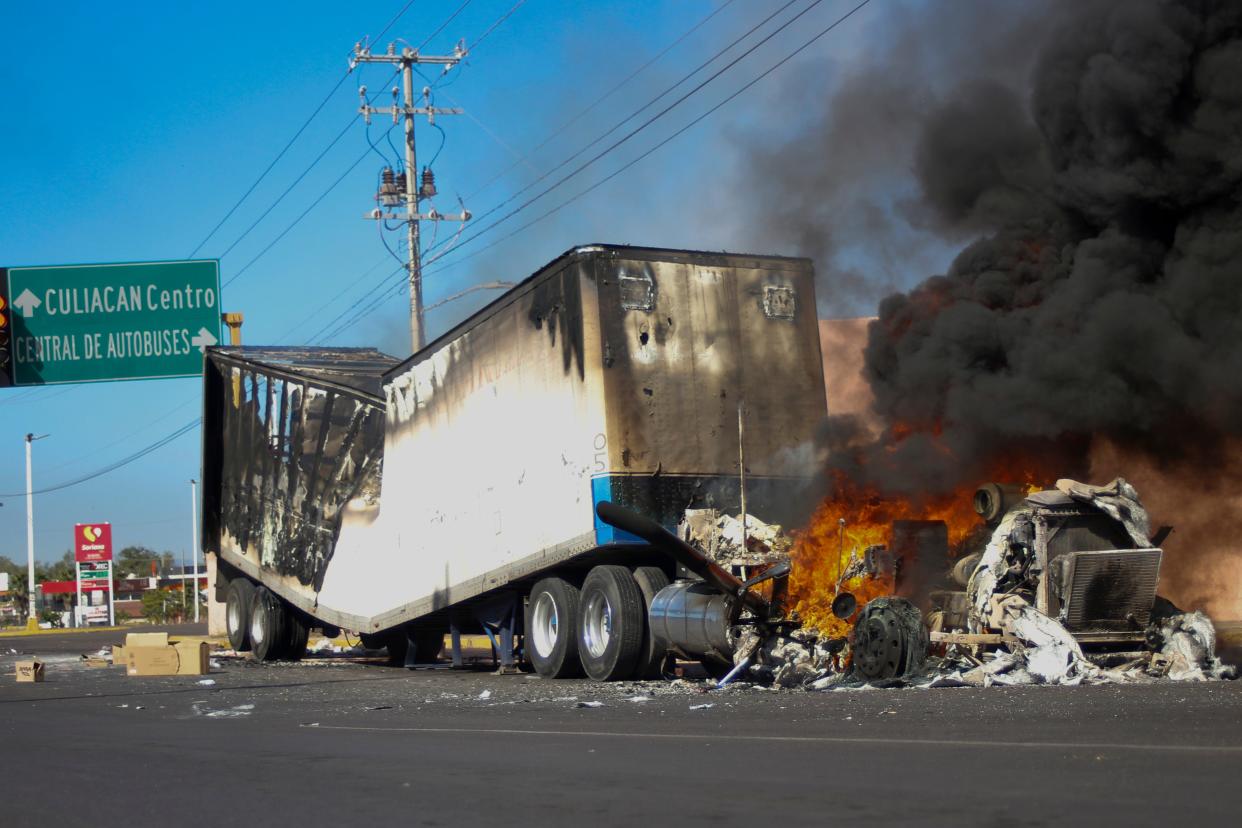
- Oops!Something went wrong.Please try again later.
MEXICO CITY ― Skyrocketing fentanyl overdoses in the U.S. and the latest high-impact attacks against Americans on Mexican soil have again led to demands that the U.S. designate drug cartels as terrorist organizations.
Several congressional Republicans are behind the push.
They say designating Mexican cartels as terrorist organizations would give U.S. authorities the tools they need to take them down.
It may seem to be a simple designation. But it is anything but that.
Here’s what representatives from each side, and the experts who study the issue, are saying:
‘Cartels in our crosshairs’
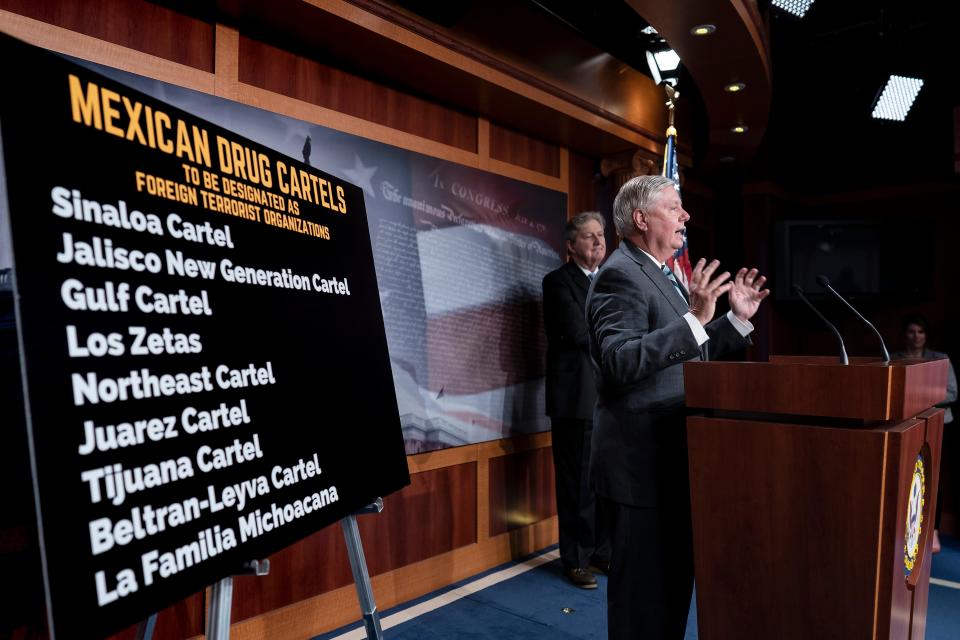
Six Republican U.S. senators introduced a bill on March 29 called the NARCOS Act. It would add the “foreign terrorist organization” label to nine notorious Mexican cartels, including the powerhouse Sinaloa and Jalisco New Generation cartels. A similar bill was also introduced in the House of Representatives.
“Despite what the president of Mexico says, drug cartels are in control of large parts of Mexico,” Sen. Lindsey Graham, R-S.C., said in a prepared statement.
“They are making billions of dollars sending fentanyl and illicit drugs into the United States, where it is killing our citizens by the thousands. Designating these cartels as Foreign Terrorist Organizations will be a game-changer. We will put the cartels in our crosshairs and go after those who provide material support to them, including the Chinese entities who send them chemicals to produce these poisons.”
China, and more recently, India, are sources of “precursor” chemicals used by drug cartels to produce fentanyl and methamphetamine for shipment north of the border.
The terrorist designation would give law enforcement and prosecutors more power to freeze cartel assets and deny their members' entry to the U.S., Graham’s office reported. It would also open the door to charging those who support a terrorist organization.
Mexican leaders have said it would violate Mexico’s sovereignty and lead to a breakdown in diplomatic relations between the nations.
Associate Professor Nathan Jones at the College of Criminal Justice at Sam Houston State University concurs.
“It’s a bad idea, in part because of the impact it will have on U.S.-Mexico relations,” said Jones, who studies organized crime in Mexico.
Any benefit that might be gained “would be wiped out by a lack of cooperation that would likely result,” he said.
More: Ignoring cartel danger, Mexican families scour wilderness for missing loved ones' remains
‘Politicking here and there’
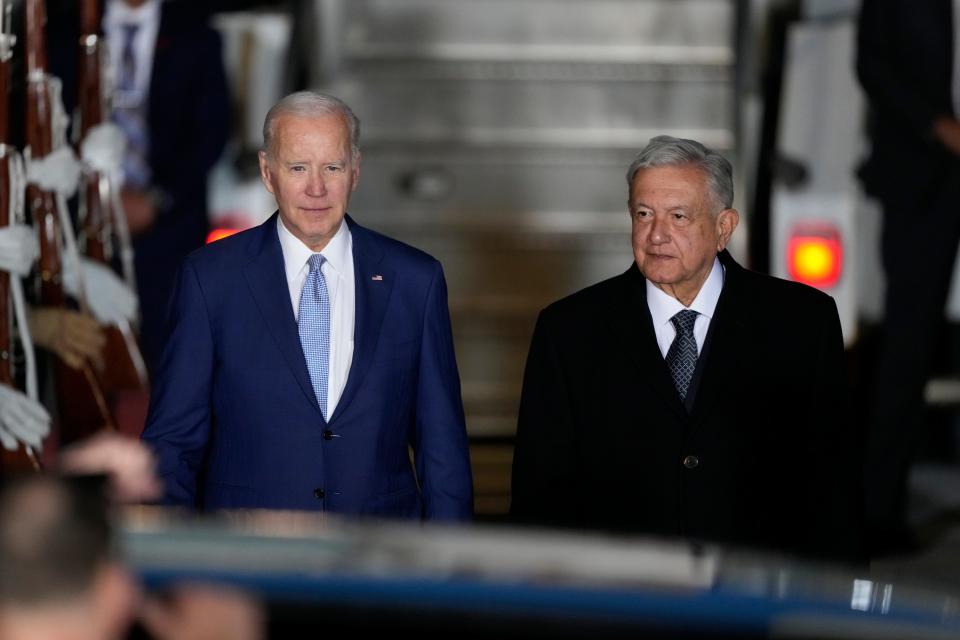
In early March, four Americans were kidnapped, and two of them killed after they crossed into Matamoros, Mexico, for a medical procedure.
The Gulf Cartel later took responsibility and turned over its members who had committed the acts.
The crimes ramped up calls for the terrorist designation, which was debated during the Trump administration, and opened the door to additional criticism of President Joe Biden’s border policies.
“The Mexican government is being held hostage by tens of thousands of paramilitary members of terrorist organizations that effectively control Mexico...” Former U.S. Attorney General Bill Barr told Fox News. “They can use violence and oceans of cash to corrupt the government...”
Mexico President Andrés Manuel López Obrador said the criticism around the situation was purely political.
“There was politicking here and there, but we have to work together respecting our sovereignties,” said López Obrador, who has blamed the fentanyl crisis in the U.S. on the “lack of hugs, of embraces” given out in American families.
Another professor who studies security and intelligence, Javed Ali at the University of Michigan, wonders what it's going to take for the American government to take the terrorist-designation step.
“After what happened to the four Americans, at what point is the U.S. going to start to explore some of these other tools and options that we have available to put more pressure on the cartels?” Ali asked.

“Would it be controversial? Absolutely. But look how bad things are right now. I'd be willing to at least take a little bit of risk to try to put pressure on the groups that are threatening both countries the most and see if that leads to better results.”
Ali said it shouldn’t fall to the U.S. to act unilaterally, though.
“There is way more violence on the Mexican side of the border than there is on the U.S. side of the border, so I think it's in Mexico's interest to take sort of a new approach on this, as well, and in partnership with the U.S.,” he said.
More: Will El Chapo son's arrest slow export of drugs to US? Next steps crucial, experts say
Sovereignty at stake
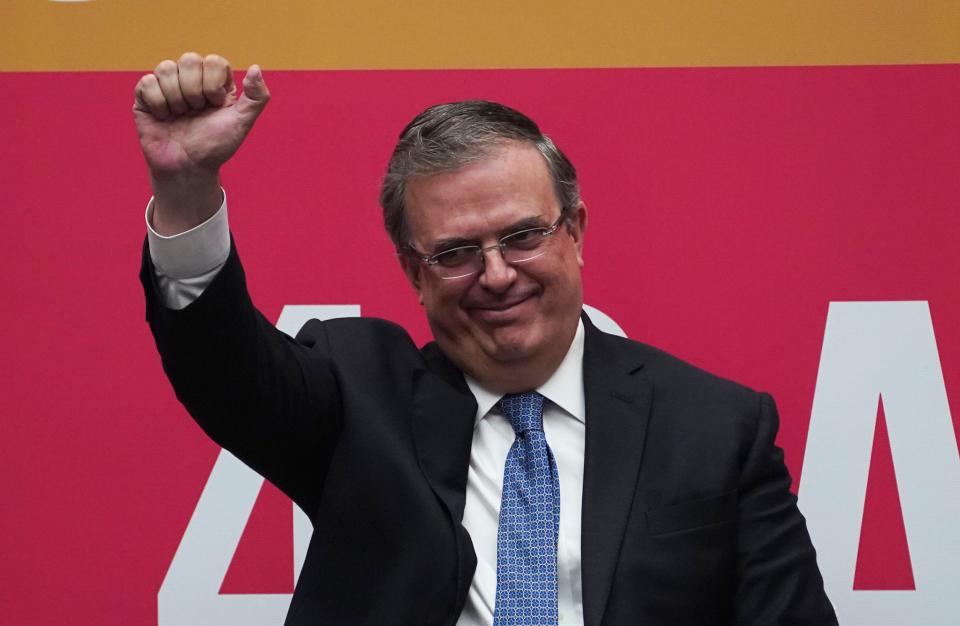
Mexican officials have continued to push back over the strong language coming out of Washington, D.C.
Mexico’s foreign minister Marcelo Ebrard traveled to Washington to meet with Mexican diplomatic staff and to start a campaign “to defend Mexico in the U.S. after the unacceptable attacks by legislators and former officials of the Republican Party.”
Graham has called for using the terrorist designation to allow for military action against the cartels.
“It's time now to get serious and use all the tools in our toolbox, not just in the prosecution way, not just in the law enforcement lane, but in the military lane, as well,” he said during a press conference following the Matamoros kidnappings.
Ebrard opposed any possible U.S. military intervention in Mexico to defeat the cartels, saying, “over my dead body,” and “we are not going to allow Mexico to be pushed around.”
While experts on both sides of the border were quick to agree it would be a violation of Mexican sovereignty, they acknowledged more cooperation is needed to confront drug trafficking.
“It is indeed a violation of sovereignty, but in the fight against global problems such as climate change, the pandemic, and in this case, drug trafficking, all countries have to concede some sovereignty in order to face global challenges,” David Saucedo, a Mexico-based security analyst, said.
“I agree with binational cooperation to be able to confront drug trafficking. I don't even rule out the possibility of more DEA agents in Mexico collaborating and dismantling criminal cells, investigating drug leaders in Mexico.”
Sam Houston University’s Jones also said sovereignty would be at stake, “and because of that intangible sovereignty, (the Mexican government is) going to have to react on some level diplomatically.
“And what will likely happen is there would be even reduced law enforcement cooperation. And that's the real shame because that gets people on both sides of the border killed and reduces the likelihood that we can solve important crimes to prevent violence on both sides of the border.”
Is the Mexican government in control?
Graham pushed his contention about the Mexican government’s lack of control during a March 22 congressional hearing appearance by U.S. Secretary of State Antony Blinken.
When questioned by Graham if there are places in Mexico where the government doesn’t have control, Blinken said, “I think that’s fair to say, yes.”
President López Obrador responded that Blinken was coerced to say those words.
“There is no place in the national territory where there is no presence of authority. I can tell Mr. Blinken that he knows we are constantly destroying clandestine laboratories everywhere,” the president said.
More: Outbreak of Mexican cartel violence targeting innocents raises worries of what’s to come
But there are places in Mexico in which the government has no presence, a bishop from Michoacán state told the Mexican newspaper Proceso.
A security report made by a group of bishops in Mexico, which will be delivered to Pope Francis at the Vatican, states organized crime has advanced so far it has control of specific parts of Mexico and that collusion with authorities of all levels of government exists.
“If you leave your town, your land where you are living to attend to a commitment, you don't know what might happen during the day when you go across the border,” Bishop Carlos Garfias told Proceso, referring to both national and some state borders within Mexico.
The definition of terrorism
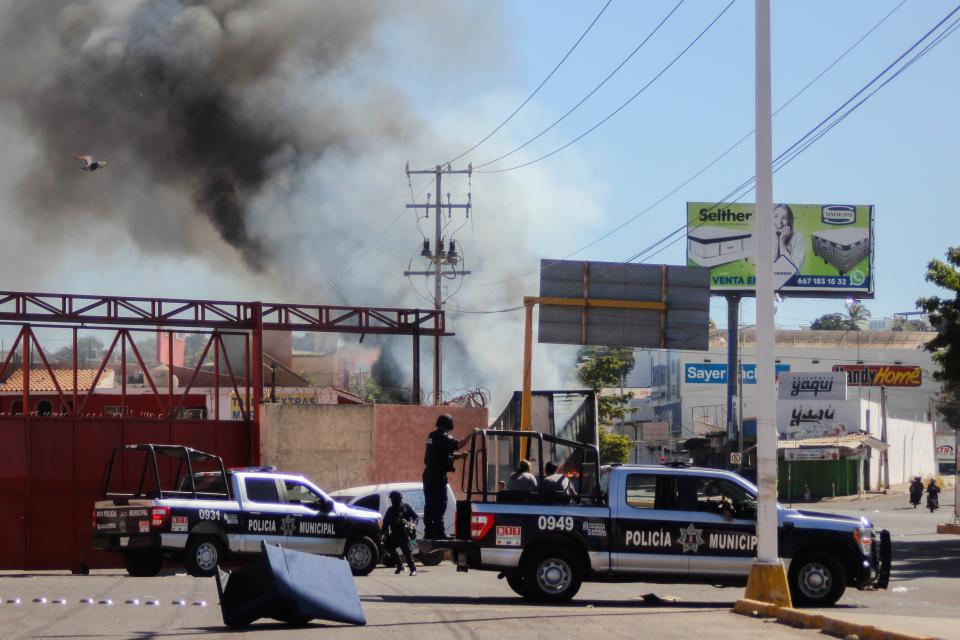
Do the activities of Mexico’s drug cartels fit the criteria for terrorism?
“A terrorist group carries out violent acts with religious motives, with political motives to reinforce governments to adopt measures or not to apply certain policies,” Saucedo said.
“Drug trafficking groups have political and economic-criminal motivations. Their goal is not to destroy a government, but rather to force them to take positions of respect for their interests. Indeed, they also have committed acts of narcoterrorism on the civilian population,” Saucedo explained.
More: City hall massacre: Local Mexican leaders risk lives to stay in office in cartel territory
According to the U.S. State Department, the legal criteria are that it must be a foreign organization, must engage in terrorist activities and must threaten the security of individual U.S. citizens or national security.
“You can make a compelling argument that (cartel) activity fits these three criteria,” said the University of Michigan’s Ali, who has a background that includes the FBI and National Counterterrorism Center.
Mexican government and military leaders’ maintain cartel activity is criminal activity, not terrorism, and the designation would have a negative impact on Mexico as a whole.
Boots on the ground?
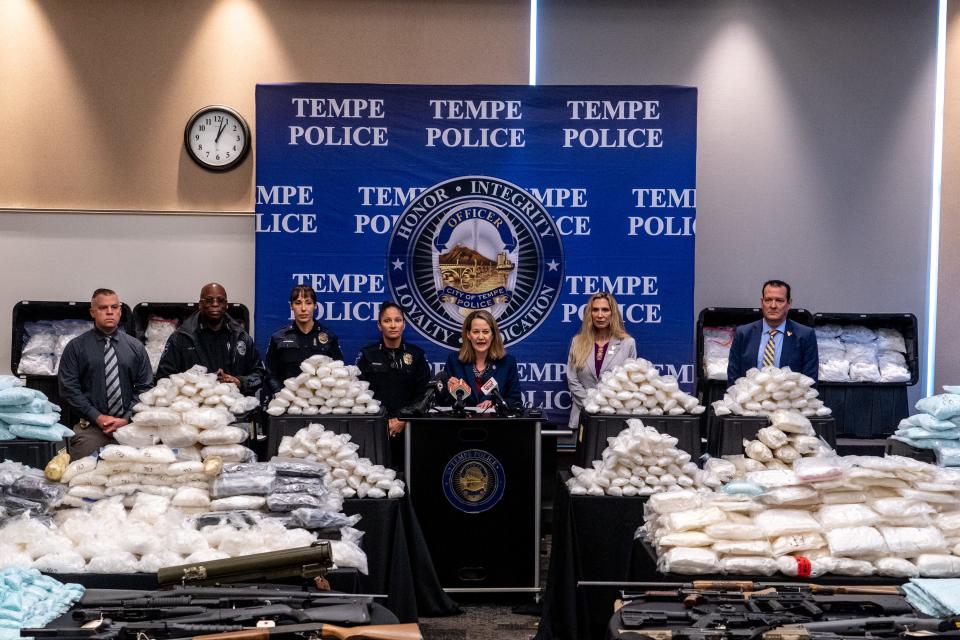
According to the daily narrative in Mexico, the designation would mean American boots on the ground in Mexico.
However, the security experts that spoke with The Courier Journal don’t anticipate that.
“There are conservatives making those calls about direct military intervention in Mexico. I find that unlikely, in part because of what it would do to relations between the U.S. and Mexico, and overall…” Jones told The Courier Journal.
“Absent some exigent circumstance, I don't think any U.S. president is going to launch a military operation into Mexico against a cartel in the aftermath of something terrible happening ― not without the partnership of the Mexican government,” Ali said.
Saucedo said the U.S. and Mexican militaries do not have the information and investigative capabilities needed in the battle against drug cartels.
“Only civil institutions can do it, such as the DEA, the FBI, the Attorney General's office and the Mexican federal police. From a practical operational standpoint, boots on the ground can’t be done,” Saucedo said.
Karol Suárez is a Venezuela-born journalist based out of Mexico City. She is a contributing writer to The Courier Journal. Follow her on Twitter at @KarolSuarez_.
This article originally appeared on Louisville Courier Journal: Should Mexican drug cartels be labeled as 'terrorist' groups?

